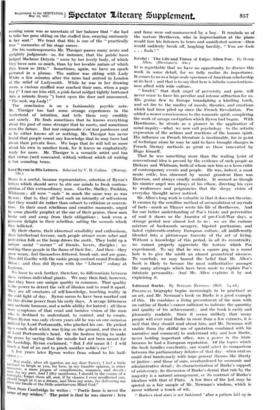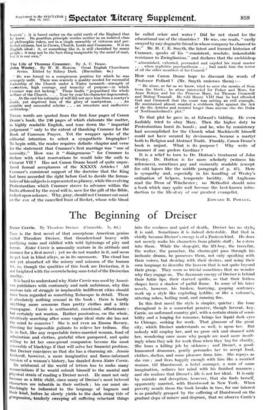Edmund Burke. By Bertram Newman. (Bell. is. 6(1.) POLITICM. biography
begins increasingly to be practised as an art, and Mr. Newman's book on Burke is a good example of this. He combines a living presentment of the man with an outline of Burke's career sufficient to indicate the quantity and quality of his achievement ; and the book is easily and pleasantly readable. Since it seems unlikely that many people will ever read Burke in more than a few extracts, it is well that they should read about him, and Mr. Newman will enable them (by skilful use of quotation combined with his narrative and comment) to understand why and how Burke, never holding important office, was a power in the State because he had a European reputation. Of the topics which the book handles excellently, one would select its comparison between the parliamentary debates of that day—when orators could deal. handsomely with large general themes like liberty or justice—and those of ours, overburdened by economic and administrative detail ; its characterization of Burke's support of aristocracy, its discussion of Burke's denial that rule by the majority is a natural arrangement, or its contrast of Burke's idealism with that of Plato. A few lines of the last may be quoted as a fair sample of Mr. Newman's wisdom, which is never without a touch of wit.
-"-Burke's ideal state is not fashioned after a pattern laid up in heaven.' ; it is based rather on the solid earth of the England that ho knew. Its guardian principle resides neither in an isolated class of philosophic rulers, nor in a single assembly of virtuous and per- fected citizens, but in Crown, Church, Lords and Commons. It is an English ideal : it, or something like it, is still cherished by many people ; it may not be the best thing imaginable by the mind of man, but it is our 01911."



























































 Previous page
Previous page